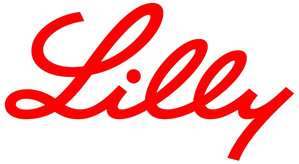INDIANAPOLIS, July 9, 2015 /PRNewswire/ -- The U.S. Food and Drug Administration's (FDA) Oncologic Drugs Advisory Committee (ODAC) met today to discuss the data supporting Eli Lilly and Company's (NYSE: LLY) necitumumab in combination with gemcitabine and cisplatin for use in first-line treatment of patients with advanced squamous non-small cell lung cancer (NSCLC).
Squamous NSCLC is a devastating and difficult-to-treat form of lung cancer. The five-year survival rate for patients with metastatic disease is less than five percent.[1] Necitumumab in combination with gemcitabine and cisplatin is the first regimen to show a significant improvement in overall survival over chemotherapy alone, specifically in the first-line setting.
"We are encouraged by the Committee's constructive discussion on the benefit-risk profile of necitumumab as few advances have been made over the past two decades in the first-line treatment of advanced squamous NSCLC, leaving a significant unmet medical need," said Richard Gaynor, M.D., senior vice president, product development and medical affairs for Lilly Oncology. "We believe necitumumab with gemcitabine and cisplatin represents a meaningful advance in the search for a new first-line treatment option and look forward to working closely with the FDA as they continue their review."
The FDA is expected to make a decision on Lilly's biologics license application for necitumumab later this year.
About Necitumumab
Necitumumab is a recombinant human IgG1 monoclonal antibody that is designed to block the ligand binding site of the human epidermal growth factor receptor 1 (EGFR). Activation of EGFR has been correlated with malignant progression, induction of angiogenesis and inhibition of apoptosis or cell death.
About Squamous Non-Small Cell Lung Cancer (NSCLC)
NSCLC is the most common type of lung cancer, and accounts for about 85 percent of all lung cancer cases.[2] Squamous NSCLC, which represents about 30 percent of all people affected by NSCLC,[3] is a devastating, difficult-to-treat form of the disease. Patients face an imposing disease and symptom burden with very poor prognosis; the five-year survival rate for patients with metastatic disease is less than five percent.[4] Little progress has been made over the last two decades, particularly in the first-line setting, leaving a significant unmet medical need. In order to address the unique and complex needs of individual patients with advanced squamous NSCLC, more first-line treatment options are needed.
About Lilly Oncology
For more than fifty years, Lilly has been dedicated to delivering life-changing medicines and support to people living with cancer and those who care for them. Lilly is determined to build on this heritage and continue making life better for all those affected by cancer around the world. To learn more about Lilly's commitment to people with cancer, please visit www.LillyOncology.com.
About Eli Lilly and Company
Lilly is a global healthcare leader that unites caring with discovery to make life better for people around the world. We were founded more than a century ago by a man committed to creating high-quality medicines that meet real needs, and today we remain true to that mission in all our work. Across the globe, Lilly employees work to discover and bring life-changing medicines to those who need them, improve the understanding and management of disease, and give back to communities through philanthropy and volunteerism. To learn more about Lilly, please visit us at www.lilly.com and newsroom.lilly.com/social-channels. P-LLY
Lilly Forward-Looking Statement
This press release contains certain "forward-looking statements" (as that term is defined in the United States Private Securities Litigation Reform Act of 1995) regarding necitumumab and reflects Lilly's current beliefs. However, as with any pharmaceutical product, there are substantial risks and uncertainties in the process of drug research, development, and commercialization. Among other risks, there can be no guarantee that this investigational product will receive regulatory approval, or, if approved, that it will become a commercially successful product. For further discussion of these and other risks and uncertainties that could cause actual results to differ materially from Lilly's expectations, please see the company's latest Forms 10-K and 10-Q filed with the U.S. Securities and Exchange Commission. Except as required by law, Lilly undertakes no duty to update forward-looking statements.
[1] Howlader N, Noone AM, Krapcho M. SEER Cancer Statistics Review, 1975-2012, National Cancer Institute, Bethesda, MD, http://seer.cancer.gov/csr/1975_2012/. April 2015. Accessed June 12, 2015.
[2] American Cancer Society, What is non-small cell lung cancer? http://www.cancer.org/cancer/lungcancer-non-smallcell/detailedguide/non-small-cell-lung-cancer-what-is-non-small-cell-lung-cancer. Accessed June 12, 2015.
[3] Erickson HS, Wistuba II. Pathology of lung cancer. In Lung cancer: a multidisciplinary approach to diagnosis and management. Kernstine KH, Reckamp KL, Thomas C (eds). New York, NY: DemosMedical, Inc; 2010.
[4] Howlader N, Noone AM, Krapcho M. SEER Cancer Statistics Review, 1975-2012, National Cancer Institute, Bethesda, MD, http://seer.cancer.gov/csr/1975_2012/. April 2015. Accessed June 12, 2015.
| Refer to: |
Carla Cox; [email protected]; (317) 473-4368 (Lilly Oncology) |
| Mariann Caprino; [email protected]; (917) 242-1087 (TogoRun) |
Logo - http://photos.prnewswire.com/prnh/20031219/LLYLOGO
SOURCE Eli Lilly and Company
Related Links
WANT YOUR COMPANY'S NEWS FEATURED ON PRNEWSWIRE.COM?
Newsrooms &
Influencers
Digital Media
Outlets
Journalists
Opted In




Share this article